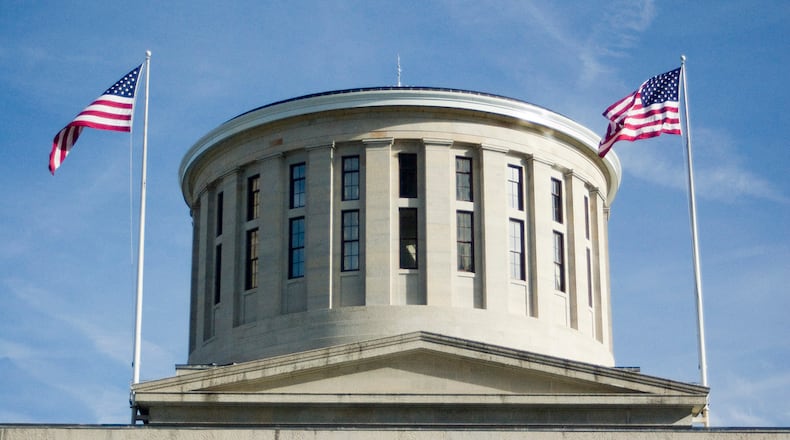Boggs, D-Columbus, and state Rep. Laura Lanese, R-Grove City, introduced the legislation Monday.
NEW DETAILS: Brock Turner’s appeal arguments ‘all lack merit,’ prosecutor says
Forcible rape of a spouse became illegal in Ohio in 1986. But sections of the state’s rape law apply only when the spouse is not living with the offender.
Marital rape as defined in the Ohio Revised Code is illegal and punishable as a felony. Under that definition, rape occurs when a defendant compels a spouse to engage in sexual intercourse against the victim’s will by “force, threat of force, or deception.”
But Ohio has an exemption that treats certain encounters between spouses differently than if two people were unmarried. For example, if a husband drugs his wife and then rapes her, it would not fall under the state’s marital rape statute.
RELATED: Change sought for Ohio's 'archaic' rape law
House Bill 561 would eliminate the spousal exemptions for offenses of rape, sexual battery, unlawful sexual conduct with a minor, gross sexual imposition, sexual imposition, and importuning.
“I think across the board there are a lot of archaic laws on the books, and sometimes it just takes someone opening up the books to say, ‘holy cow,’” Lanese said. “It bothers me that Ohio is not where we should be on this.”
Similar legislation has been introduced without success in 2015 and 2017. But this week's legislation marks the first time a Republican has affixed her sponsorship to the bill.
STATEHOUSE: Ohio lawmaker stands by gun-carrying students comment despite critics
In the past, the Ohio Prosecuting Attorneys Association has expressed concern that removing the exemption could open the door to false claims made in an attempt to gain leverage in custody and divorce cases. The group has not yet examined the latest version of the legislation.
“Prosecutors take all allegations of rape with the utmost seriousness, but these cases present particular problems regarding proof because it happens between a husband and wife in private and there is often little or no evidence,” Louis Tobin, the group’s executive director, said in an email to this news organization.
Lanese said she believes such fears of he-said/she-said are “poppycock.”
“Anyone can say anything they want against another person,” she said. “That’s what juries are for.”
Marital exceptions to rape laws were the norm in the United States until the mid-1970s. But marital rape has been illegal in every state and the District of Columbia since 1993, according to the Rape Abuse and Incest National Network.
Before 1986, marital rape was not illegal in Ohio unless the couple had a separation agreement or court filing to dissolve the marriage, according to a 1995 Cleveland Law Review article.
Read more stories:
» After school threats, Ohio children face next step: Court
» FBI offers $15K reward for missing teen boy who saw father killed
» Fairborn police: Schools won’t release records about arrested 12-year-old
» Menards to build new Fairborn store
Staff Writers Laura Bischoff and Lynn Hulsey contributed reporting.
About the Author
